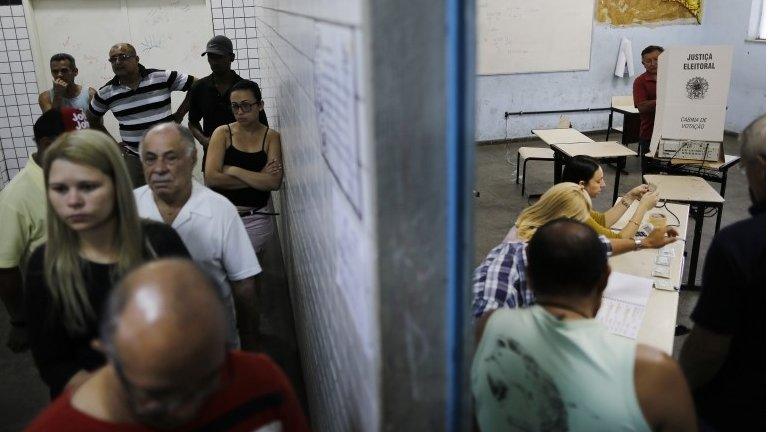Brazilian press says voters denied change
- Published
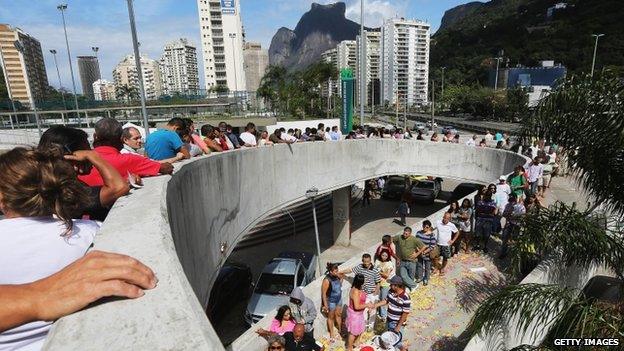
A tight race is predicted for the second round
Brazilian papers appear to be frustrated at the prospect of a run-off between the two parties who have dominated the political scene for the last 20 years, despite clear widespread discontent with the status quo. Any hopes for a radical shift in direction for Brazilian politics - raised during the last part of the campaign when environmentalist Marina Silva gained ground - have come to a halt now that she is out of the race.
"Nothing resolved" says the headline in the most widely-read Brazilian daily, Folha de Sao Paulo, external. With the vote tally of the incumbent candidate, President Dilma Rousseff, only eight percentage points ahead of her centre-right rival Aecio Neves, the paper says: "Dilma can celebrate her lead, but the alarm bells don't stop ringing."
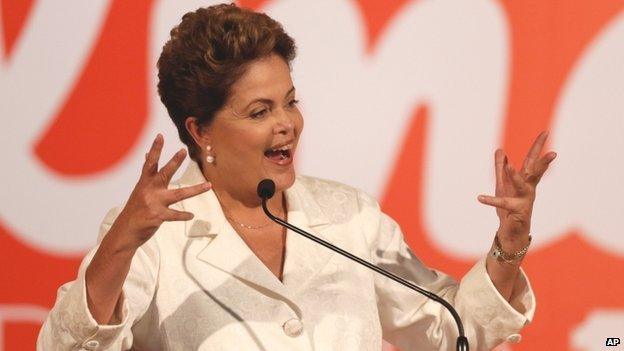
Dilma Rousseff says she understands the message from the streets
'No easy win'
A commentator for Correio Braziliense daily, external, Luis Carlo Azedo, says re-election is now "not so easy" for Ms Rousseff, as the gap between her and Mr Neves is "relatively small".
One reason Ms Rousseff is not comfortably ahead is that she can't count on the support of Ms Silva in the second round. The O Dia daily says, external that the fight to win the votes of Ms Silva's supporters will "heat up the campaign".
Papers such as the popular O Globo, external and Folha de Sao Paulo , externalsuggest that Ms Silva has effectively signalled support for Mr Neves in the second round by saying most Brazilians voted "against the status quo" and that "one cannot quibble with the feelings of 60% of electors".
The O Globo daily quotes , externalunnamed persons "close to Silva" as saying that there is "no possibility of an alliance" with President Rousseff after the heated words the two candidates exchanged on the campaign trail.
'Lula's shadow'
One factor noted by the press is the popularity of the ruling Workers' Party led by Ms Rousseff in the country's north-east - the poorest of the six regions, where social programmes introduced by the party are seen as offering a lifeline to many.
Ricardo Melo calls the Workers' Party "Lula's party", external, referring to the influential former president and one of the founders of the party, Luiz Inacio Lula da Silva. Writing in Folha de Sao Paulo, Melo says the "hegemony" of the ruling party shines through despite its inconsistent showing in the regions.
The papers also discuss the possible effect on the second round of another important background figure: the widow of Eduardo Campos, the Socialist presidential candidate killed in a plane crash, who was replaced by Ms Silva. Mario Simas Filho says, external in the weekly news magazine Isto É. that "the presence of Renata Campos at Aecio's side is important in order for [Neves] to increase his presence in the north-east, a region where President Dilma has a huge advantage".
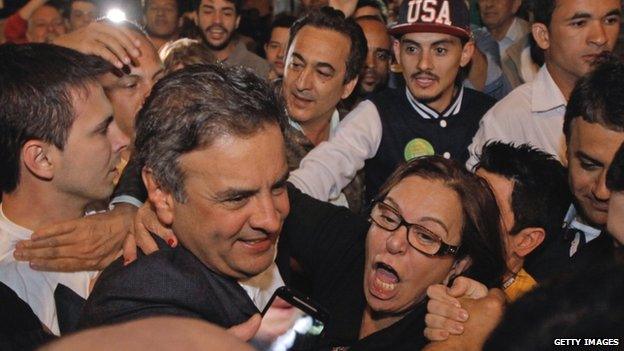
Aecio Neves has a business-friendly image, but lacks support in the north-east
'Frustrations'
"Amid the din of advertising and poll statistics, the frustrations of June 2013 continue unanswered," says an editorial in Folha de Sao Paulo editorial, recalling the protests of 2013 when unhappiness over the cost of public services, corruption and controversy about hosting the World Cup boiled over into large street demonstrations.
Ricardo Melo criticizes the administration of the current government as doing a "lot less than it should", reflecting a perception among some people that the Workers' Party has failed to make a real difference in improving social mobility.
Commentator Joao Bosco Rabello says the elections could be decided in Sao Paulo, where the mass of voters could neutralise Ms Rousseff's advantage in the north-east. Writing in O Estado de Sao Paulo, external, he says support in Sao Paulo for Mr Neves is running at almost two to one.
BBC Monitoring reports and analyses news from TV, radio, web and print media around the world. More reports from BBC Monitoring can be seen here. You can follow BBC Monitoring on Twitter, external and Facebook, external.
- Published6 October 2014

- Published6 October 2014
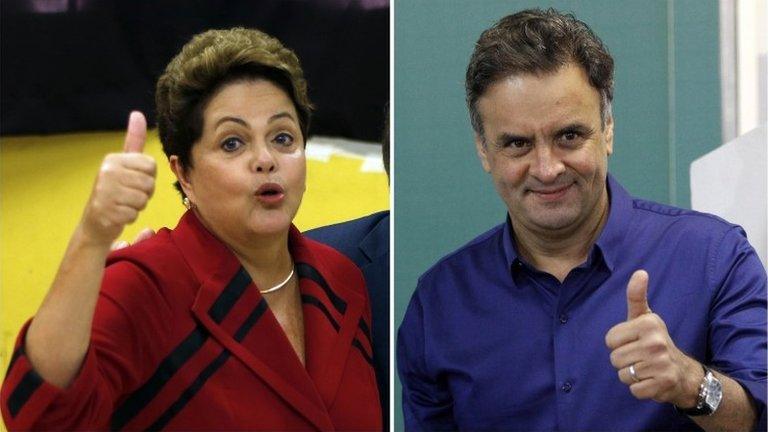
- Published5 October 2014
